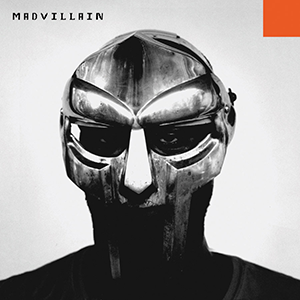Bradford Cox had quite a year in 2010. Between a spring tour for his side project, Atlas Sound, a summer tour for his primary group, the critically acclaimed rock outfit Deerhunter, the September release of Deerhunter’s fourth full-length album “Halcyon Digest,” and a follow-up tour through the fall, one would never have suspected that Cox was plying with another 49 tunes all the while, which he shocked the world by releasing last November as a four-part self-released album, “Bedroom Databank Volumes 1 – 4.”
Longtime fans and those only recently aware of Cox and Deerhunter’s talent are probably aware that both are incredibly prolific artistic ventures; Deerhunter released its second album, “Cryptograms,” in January of 2007, following it up with the “Fluorescent Grey EP” four months later, then turning around a double album, “Microcastle/Weird Era Cont.” Throughout that time, Cox was tinkering with his first solo album, “Let the Blind Lead Those Who Can See but Cannot Feel,” which he put out on Kranky Records in February, 2008. Since then, he released “Logos” in the fall of 2009, while Deerhunter put out the “Rainwater Cassette Exchange EP” that March and dropped “Halcyon Digest” last September.
Where Deerhunter practices a louder, faster and more musically organic brand of contemporary rock, structuring their rhythms around timing and synchronization along with steady drumbeats and genius sampling, Atlas Sound is often about subtlety. Cox uses spider web-thin delivery and tracks almost dripping with layered vocals to create a dreamlike, surreal and ethereal quality to his personal tracks. His first solo work, “Let the Blind Lead,” is somewhat abstract, where 2009’s “Logos” is more directed, though both draw much of their sound from electric accouterments, synths and Cox’s airy, haunting vocals.
“Bedroom Databank” does not deviate from this heavily-electronic recipe, but where it shifts so monumentally from Cox’s prior work is in its homage to more timeless material and its consistently slow, folky and twangy pace. While each of the four installments has a distinct flow, the collection flows astoundingly well for something flung together so quickly in Cox’s home studio and Atlanta recording pad.
“Volume 1” starts slowly and quietly, with several instrumentals setting the tone for a progression that ultimately weaves its way across genres, sounds and generations. The opening track, “Green Glass Bottles,” is more characteristic of Cox’s prior work than much of the volume, as it evokes elements of “Let the Blind Lead,” in its wispy, thin consistency and resigned, drifting vocal patterns. Slightly later, Cox takes a turn towards the psychedelic with “Wild Love,” which employs a wobbling, loopy synth to deliver a sweeter feel. Soon thereafter, he nods to a contemporary, covering his tour-mate from last summer, the up-and-coming Philadelphia rocker Kurt Vile. From there, though, Cox leaps out of the mold which developed his reputation and shifts towards a much grungier, bluesier milieu. “Hotel Orlando” kicks off with a droney, honky-tonk harmonica layered over a shrill synth line, which becomes the song’s reprise. Though the tune still carries along a slow, subdued timeline, it marks a major departure, as Cox’s vocals are closer to their clearer, sharper cousins on Deerhunter tracks and the song plays like a cover of something you’d have heard in a musty Southern bar sometime so long ago you can’t place it. Cox again strays from his familiar turf with the next track, “This Wheel’s On Fire,” a cover of a 1975 ditty from Bob Dylan and the Band. The track starts with a grungy, ripping guitar before giving way to a steady, twangy guitar line and Cox’s heavily distorted, but perfectly-suited, vocals. “This Wheel” really stands out because it is such a marked departure from Cox’s past; anyone who had followed him knew he was a fan of shoe-gazers like My Bloody Valentine, or the intricate, layered complexity of Radiohead, but here listeners hear far more of Neil Young than they do the Smiths.
As quickly as he worked his way into rock, twang and blues, however, Cox steps out and returns to his free-form, ambient tracks, as he follows his Dylan cover with an entirely ambient track, “Postcard,” which sounds something like playing pinball on a xylophone, to end the first volume.
“Volume Two” is equally diverse. Cox opens with a flowery, lush instrumental, “Pilot Light,” composed of airy guitar tracks flowing like dandelions in a spring breeze, and stays with the lighter, 60s-influenced motif on the next track, “Strange Parade,” where his vocals are again faded and weepy, as if put through a muffler, juxtaposed against a soft, psychedelic guitar and a light drum beat. He stays with these slightly muted, quintessentially Atlas Sound vocals set against airy acoustic guitar on the next track, “Stationary Blood.” The opening tracks to “Volume Two” are again a break for Cox, as they are more reminiscent of 60s and 70s psychedelic-folk like Tyrannosaurus Rex than they are twitchy, edgy tracks familiar to contemporary indie devotees. Consistent with the arc of the “Bedroom Databanks,” however, Cox quickly shifts style. The next piece, “La Luna,” is more toned down and faded, like Cox’s earlier work, though it stays with the lighter guitar lines, albeit slightly droopier ones, and brings in a slow but steady drum beat to keep pace. The fifth tune, “Day Out,” is arguably one of the best on the whole collection. Cox crafts a sleepy feel set over heavy snare drums and a flowing guitar and misty vocals, building up and down several times throughout the track to create tension and a mesmerizingly melancholy ambiance juxtaposed with energetic, lively instrumentation. He then takes off his rock shoes once again to mess around with instrumentals, some of which feel hastily crafted, almost as if he needed filler material to round out the depth of the volume. The tracks that follow are evocative of Cox’s earlier work on “Let the Blind Lead,” as they are mostly electronically-effected, quiet pieces built around his dreamy voice and quieted ambient sounds. “Volume Two” rounds out well with the louder, countrified “Willful,” a short tune where Cox cranks up the volume on his amps and reverts to Deerhunter form, and with the 11-minute “Here Come the Trains,” on which Cox showcases his versatility, as he manages to shift tempo, form and genre on a bending, wavering rhythm pulling together an enormous diversity of sounds, feelings and structures.
“Volume Three” starts like “Two,” with a flowery, soft track, “Mona Lisa (Version 1),” before moving to another instrumental and then the soft, strained “I Can’t Take It,” another piece reminiscent of “Let the Blind Lead.” Another winner is “Indian Bitrate,” while “Comet 8” and “Western Shirt” reprise the country-tinged, folkified tones of the earlier pieces.
On the whole, “Bedroom Databank” is astonishingly tight and cogent for a work of its magnitude. Bradford Cox is clearly one of the most talented and prolific artists of a new wave of musicians who have ascended to indie notoriety, and his ability to interweave Brian Eno and Tangerine Dream influenced ambient tracks of incredible intricacy with his own unique brand of distorted rock, now crossed with more traditional country, blues and folk make for a rare, eclectic and wonderful medley. Obviously all the tracks are not worth listening to every time, as the anthology totals 2 hours, 37 minutes. At least try to clear out some time on a weekend afternoon to sit down and listen to as much of “Bedroom Databank” as you can. Simply trying to imagine what goes through Cox’s head as he produces his material is worth the effort, and you’ll likely leave your bedroom wishing Cox never left his and made volumes five through eight, as well. No worries, though; after Deerhunter finishes its latest U.S. tour, Cox will surely be back with more material. All the “Bedroom Databanks,” as well as Cox’s musings, some recordings, and information on Deerhunter, Atlas Sound, Deerhunter guitarist Lockett Pundt’s side project “Lotus Plaza” and more can be found at Cox and co.’s website, Deerhuntertheband.blogspot.com.
Sam Butterfield can be reached at [email protected].






